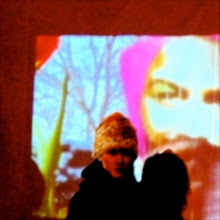CEREMONY:
1. A formal act or set of acts performed as prescribed by ritual or custom: a wedding ceremony; the Japanese tea ceremony.
2. A conventional social gesture or act of courtesy: the ceremony of shaking hands when introduced.
3. A formal act without intrinsic purpose; an empty form: ignored the ceremony of asking for comments from other committee members.
4. Strict observance of formalities or etiquette: The head of state was welcomed with full ceremony.
ETYMOLOGY: Middle English ceremonie, from Latin caerimnia, religious rite.
CUSTOM:
1. A practice followed by people of a particular group or region.
2. A habitual practice of a person: my custom of reading a little before sleep. See synonyms at habit.
3. Law A common tradition or usage so long established that it has the force or validity of law.
4a. Habitual patronage, as of a store. b. Habitual customers; patrons.
5. customs a. Duties or taxes imposed on imported and, less commonly, exported goods. b. (used with a sing. verb) The governmental agency authorized to collect these duties. c. (used with a sing. verb) The procedure for inspecting goods and baggage entering a country.
ADJECTIVE 1. Made to order. 2. Specializing in the making or selling of made-to-order goods: a custom tailor.
ETYMOLOGY Middle English custume, from Old French costume, from Latin cnsutd, cnsutdin-, from cnsutus, past participle of cnsuscere, to accustom : com-, intensive pref.; see com– + suscere, to become accustomed
FESTIVAL:
1. An occasion for feasting or celebration, especially a day or time of religious significance that recurs at regular intervals.
2. An often regularly recurring program of cultural performances, exhibitions, or competitions: a film festival.
3. Revelry; conviviality.
ADJECTIVE: Of, relating to, or suitable for a feast or festival; festive.
ETYMOLOGY: From Middle English, festive, from Old French, from Medieval Latin fstivlis, from Latin fstvus, from fstus.
RITUAL:
1a. The prescribed order of a religious ceremony. b. The body of ceremonies or rites used in a place of worship.
2a. The prescribed form of conducting a formal secular ceremony: the ritual of an inauguration. b. The body of ceremonies used by a fraternal organization.
3. A book of rites or ceremonial forms.
4. rituals a. A ceremonial act or a series of such acts. b. The performance of such acts.
5a. A detailed method of procedure faithfully or regularly followed: My household chores have become a morning ritual. b. A state or condition characterized by the presence of established procedure or routine: “Prison was a ritual—reenacted daily, year in, year out. Prisoners came and went; generations came and went; and yet the ritual endured” (William H. Hallahan).
ADJECTIVE: 1. Associated with or performed according to a rite or ritual: a priest’s ritual garments; a ritual sacrifice.
2. Being part of an established routine: a ritual glass of milk before bed.
ETYMOLOGY: From Latin rtulis, of rites, from rtus, rite. See rite.
OTHER FORMS: ritu·al·ly —ADVERB
SPECTACLE:
1a. Something that can be seen or viewed, especially something of a remarkable or impressive nature. b. A public performance or display, especially one on a large or lavish scale. c. A regrettable public display, as of bad behavior: drank too much and made a spectacle of himself.
ETYMOLOGY: Middle English, from Old French, from Latin spectculum, from spectre, to watch, frequentative of specere, to look at.
PROCESSION:
1. The act of moving along or forward; progression.
2. Origination; emanation; rise.
3a. A group of persons, vehicles, or objects moving along in an orderly, formal manner. b. The movement of such a group.
4. An orderly succession: the procession of the seasons.
INTRANSITIVE VERB: Inflected forms: pro·ces·sioned, pro·ces·sion·ing, pro·ces·sions
To form or go in a procession.
ETYMOLOGY: Middle English, from Old French, from Late Latin prcessi, prcessin-, from Latin, an advance, from prcessus, past participle of prcdere, to advance. See proceed.
PARADE:
1a. An organized public procession on a festive or ceremonial occasion. b. The participants in such a procession.
2a. A regular place of assembly for reviews of troops. Also called parade ground. b. A ceremonial review of troops. c. The troops taking part in such a review.
3. A line or extended group of moving persons or things: a parade of strollers on the mall.
4. An extended, usually showy succession: a parade of fads and styles.
5. An ostentatious show; an exhibition: make a parade of one’s talents. See synonyms at display.
6. A public square or promenade.
VERB: Inflected forms: pa·rad·ed, pa·rad·ing, pa·rades
INTRANSITIVE VERB:
1. To take part in a parade; march in a public procession: The circus performers and animals paraded down Main Street.
2. To assemble for a ceremonial military review or other exercise.
3. To stroll in public, especially so as to be seen; promenade.
4. To behave so as to attract attention; show off.
TRANSITIVE VERB:
1. To cause to take part in a parade: paraded the floats past city hall.
2. To assemble (troops) for a ceremonial review.
3. To march or walk through or around: parade the campus.
4. To exhibit ostentatiously; flaunt: paraded their wealth.
ETYMOLOGY:Probably French, action of stopping a horse, from Old Spanish parada, from Vulgar Latin *parta, from feminine past participle of Latin parre, to prepare. See per-1 in Appendix I.
OTHER FORMS: pa·rader —NOUN
SPECTATOR:
An observer of an event.
ETYMOLOGY: Latin specttor, from spectre, to watch. See spectacle.
OTHER FORMS: specta·tori·al (-t-tôr-l, -tôr-) —ADJECTIVE
specta·tor·ship —NOUN
PERFORMANCE:
1. The act of performing or the state of being performed.
2. The act or style of performing a work or role before an audience.
3. The way in which someone or something functions: The pilot rated the airplane’s performance in high winds.
4. A presentation, especially a theatrical one, before an audience.
5. Something performed; an accomplishment.
6. Linguistics One’s actual use of language in actual situations.
CELEBRATE:
Inflected forms: cel·e·brat·ed, cel·e·brat·ing, cel·e·brates
1. To observe (a day or event) with ceremonies of respect, festivity, or rejoicing. See synonyms at observe.
2. To perform (a religious ceremony): celebrate Mass.
3. To extol or praise: a sonnet that celebrates love.
4. To make widely known; display: “a determination on the author’s part to celebrate . . . the offenses of another”
(William H. Pritchard).
INTRANSITIVE VERB:
1. To observe an occasion with appropriate ceremony or festivity.
2. To perform a religious ceremony.
3. To engage in festivities: went out and celebrated after the victory.
ETYMOLOGY: Middle English celebraten, from Latin celebrre, celebrt-, to frequent, celebrate, from celeber, celebr-, frequented, famous.
OTHER FORMS: cele·bration —NOUN
cele·brator —NOUN
cele·bra·tory (sl-br-tôr, -tr, s-lbr-) —ADJECTIVE
Subscribe to:
Post Comments (Atom)


No comments:
Post a Comment